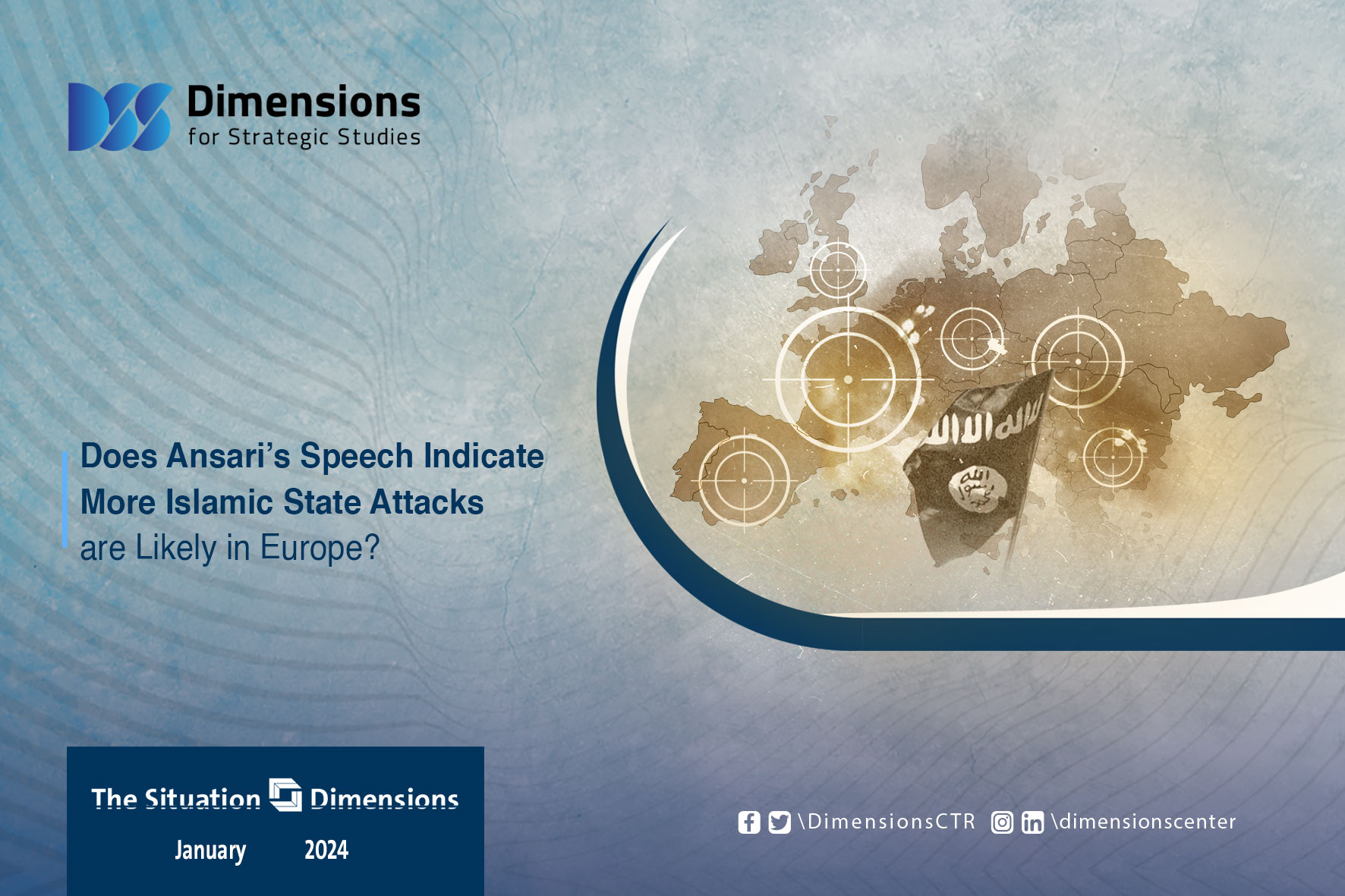
Does Ansari’s Speech Indicate More Islamic State Attacks are Likely in Europe?
2024-01-092248 view
On January 4, the Islamic State group’s spokesman Abu Hudhayfa Al-Ansari issued an audio recording under the title, taken from a Quranic verse: “And Kill Them Where You Find Them”. In a speech set in the general context of the war in Gaza, he outlined the position of IS on Iran and the Palestinian factions cooperating with it, the war itself and the steps the organization is likely to take in response.
In his closing remarks, Al-Ansari announced a global campaign targeting Western countries, Israeli interests and Iran, calling on the organization’s members to “mobilize” to make the campaign succeed.
The group did not take long to turn words into actions. Within 24 hours of the release of the speech, the organization’s official media claimed responsibility for some 35 operations targeting its enemies in Iraq, Syria, Mali, Nigeria, the Congo, Mozambique, Afghanistan, and the Philippines. Indeed, the string of announcements was the highest level of activity on the organization’s official media since its 2022 campaign in “Revenge for the Two Sheikhs”. It appears likely that IS will announce further operations in the coming days.
Indeed, a large section of the speech was focused on calls to target Israeli interests and those of Western states that support it, and calls ignore the distinction between civilians and military personnel. This can be seen as an explicit call for attacks against civilian targets in Western countries, including by vehicle rammings, stabbing, and suicide bombings.
Given the context in which the speech was published, European countries now face direct threats and calls for jihadist attacks. Further evidence of this comes in the form of operations by security forces against suspected IS members in many countries subject to its threats, such as Turkey, France, Belgium, Austria, the Netherlands, Spain, and Denmark, as they sought to prevent any jihadist violence targets during celebrations of New Year’s eve.
In addition, France, Belgium, and Sweden in particular have added to the lists of people under surveillance or classified as posing a jihadist threat. This indicates the level at which these states are monitoring people who are considered potential threats, particularly new immigrants or those who show signs of holding extremist ideologies.
In the same context, indicators of the threat posed by IS to Western countries - Europe in particular – grew over the course of 2023. This includes infiltrations of extremists from Tajikistan, Afghanistan and Pakistan via eastern Europe, or from West Africa via the Mediterranean, as well as evidence of IS continuing to attract new recruits in France and Belgium in particular. In addition, jihadists carried out deadly operations in France in January, October and December of 2023, killing of a number of civilians each time.
Moreover, the growing presence of jihadist organizations, particularly in the Sahel region, may enable them to carry out more complex attacks this year on European soil, especially given the links between people who have recently fled these countries and long-standing refugees in Europe. This risk is heightened by the recent wave of violence by both IS and Al-Qaeda in Mali and Burkina Faso. This turmoil risks sparking greater waves of displacement and migration, including by members of jihadist groups, or exploitation of their ties to serve the organizations’ aims and operations in Europe.





